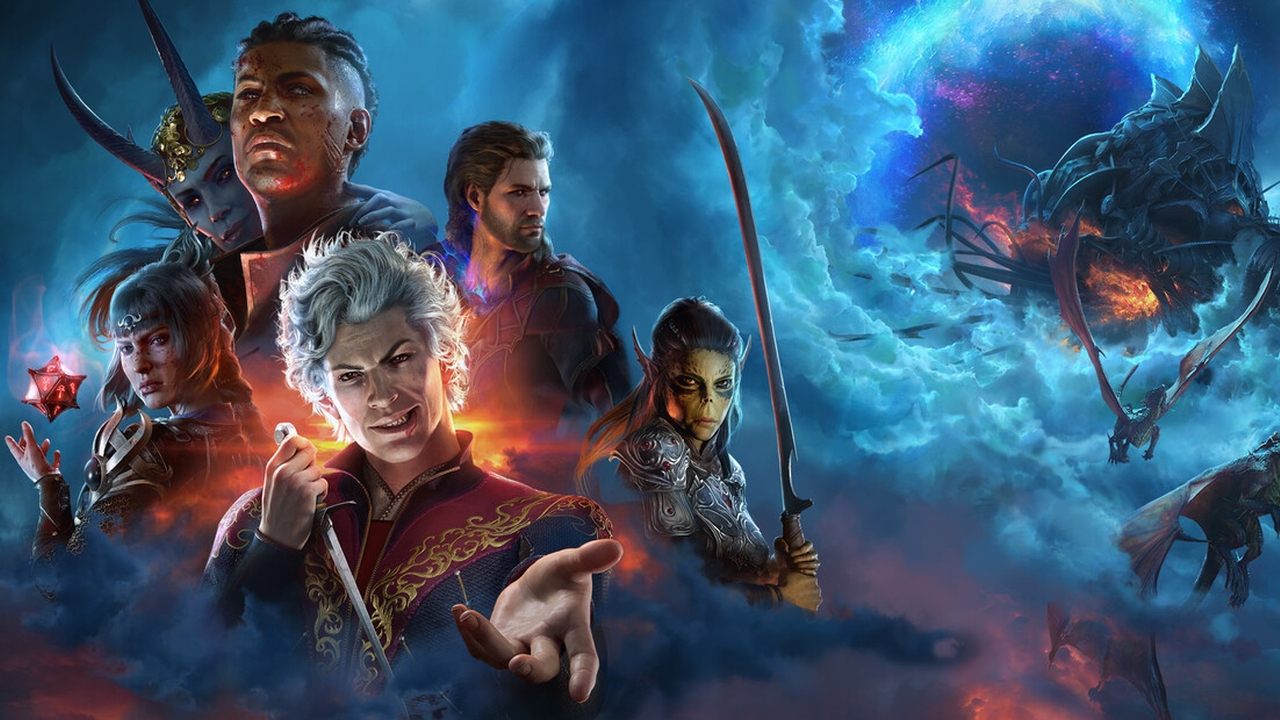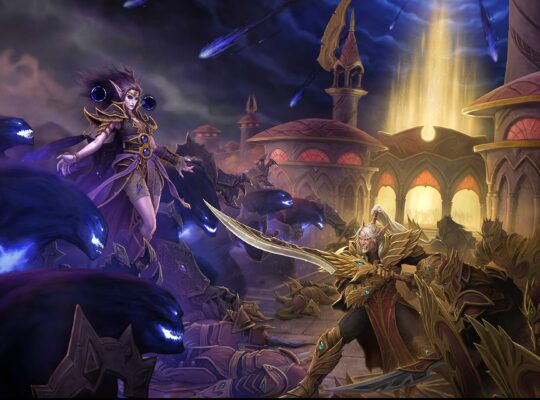If you like your games with a heavy pour of wonder – glowing ruins, sky islands, spellbooks, fox glyphs you can’t read but pretend you can – this list is for you.
Here are five games that don’t just have magic; they bend how their worlds work, inviting you to tinker, explore, and occasionally whisper “wait, can I do that?” into your controller.
1) The Legend of Zelda: Tears of the Kingdom (Switch)
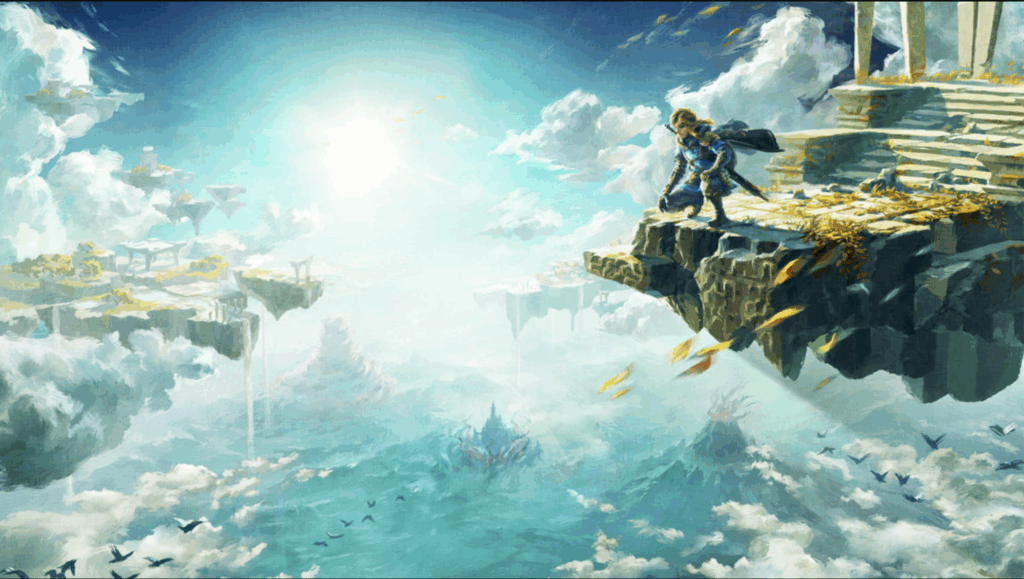
Nintendo didn’t just add more Hyrule; it handed you physics-defying tools. Ultrahand sticks parts together so you can build vehicles and contraptions, Fuse combines weapons, Ascend lets you pop through ceilings, and Recall rewinds objects in time. The result is a sandbox where systems collide and your brain goes, “One more experiment.” These abilities are official canon – Nintendo explains them directly.
“The fun isn’t finding the solution; it’s discovering how many solutions exist.”
2) Baldur’s Gate 3 (PC, PS5, Xbox Series X|S, Mac)
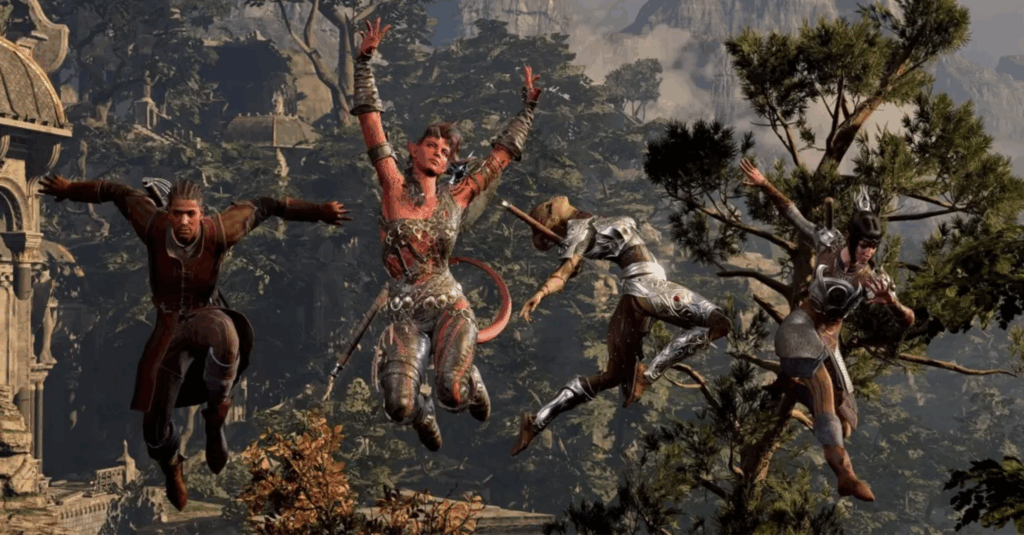
Faerûn’s magic is more than set dressing – it’s a ruleset. Spells reshape fights, exploration, and dialogue, and the game supports solo or co-op adventuring. A 2025 update added cross-play so friends on different systems can campaign together. If “mind-bending” means “a DM just said yes,” this is your pick.
3) Sea of Stars (Switch, PlayStation, Xbox, PC)

A bright, throwback JRPG where two Children of the Solstice channel sun and moon magic to push back cosmic nastiness—plus fishing, cooking, and a soundtrack with guest composer Yasunori Mitsuda. It’s built around snappy, timing-based turn-based combat. Cozy vibe, clever systems, and a world that feels mythic rather than merely magical.
4) Tunic (PC, PlayStation, Xbox, Switch)
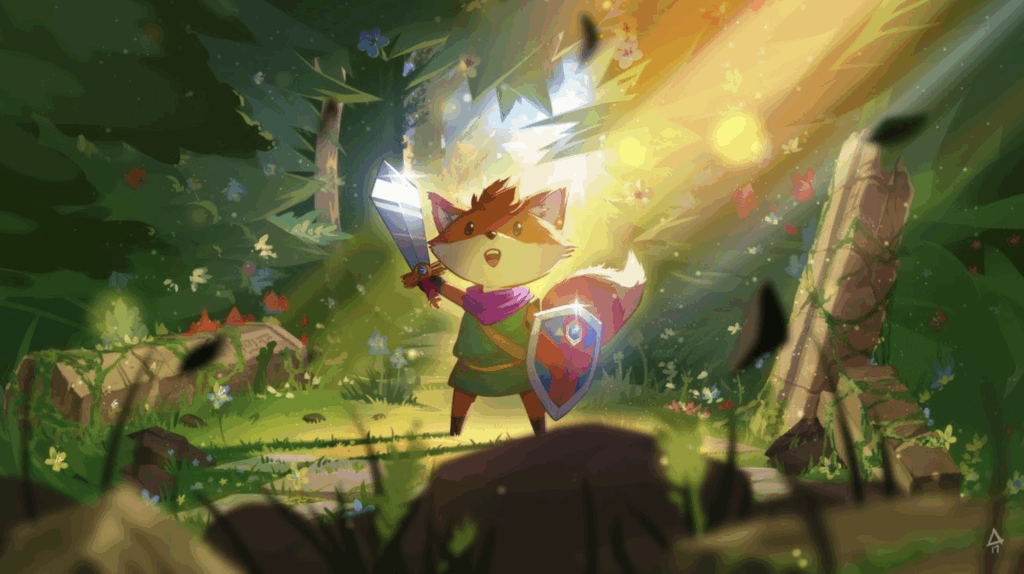
You’re a small fox in a big, broken land. The magic here is half arcane, half editorial: the world speaks in a constructed script, and you gradually piece together a manual filled with hand-drawn tips that change how you see everything. Come for the isometric charm, stay for the moment you realize the game has been teaching you its language all along.
5) Omno (Switch, PlayStation, Xbox, PC)
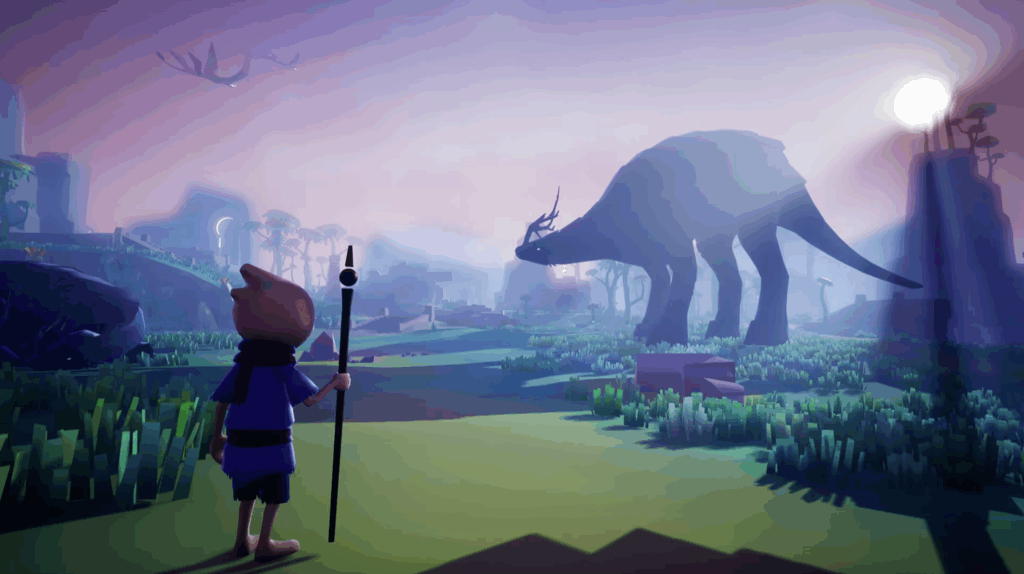
A wordless pilgrimage across luminous biomes, guided by a magic staff that powers relics, lets you glide and even surf above the clouds, and turns traversal into a kind of gentle puzzle-dance. Developed largely by a solo creator, it remains a perfect evening unwind. The official press material and platform listings highlight that staff-powered movement is the heart of Omno’s “how is this so soothing?” vibe.
How To Pick Your Portal
- Tinkerers: Start with Tears of the Kingdom for “what if I build a hover-raft?” energy.
- Party planners: Choose Baldur’s Gate 3 and bring friends across platforms (finally).
- Retro romantics: Roll into Sea of Stars for sun-and-moon spellcraft with modern polish.
- Puzzle-brains: Tunic if deciphering a world is your idea of magic.
- Wind-down explorers: Omno when you want tranquil traversal with a dash of stardust.
Final Thought
The best magical worlds don’t just look otherworldly—they give you tools that make you feel like you belong there. Whether you’re building sky-bikes in Hyrule, shaping fate with a spell slot, decoding a fox’s field manual, or surfing cloud currents, these five games reward curiosity as much as skill.
Pick the portal that matches your mood, then follow the weirdest idea you have—you’ll be surprised how often it works. And if you discover a new “impossible” trick along the way, that’s the real magic.


